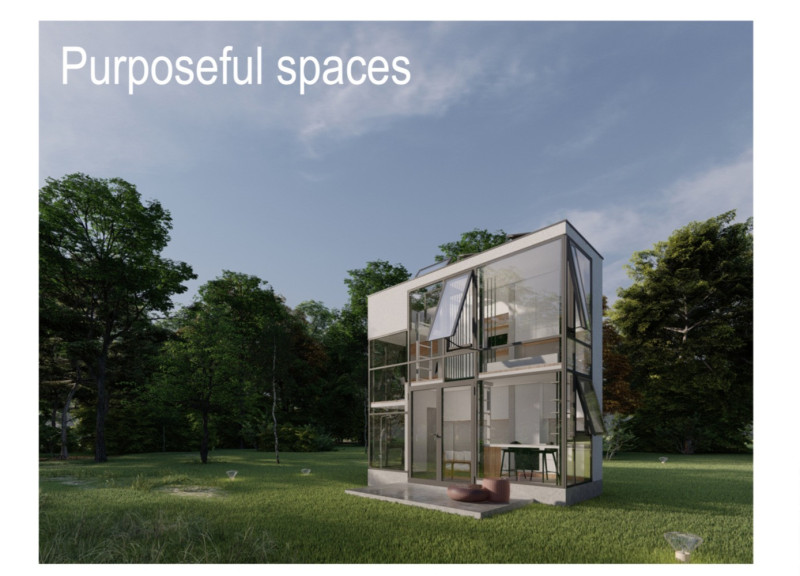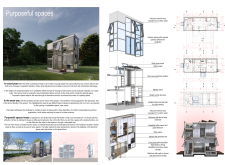5 key facts about this project
The Purposeful Spaces project offers a practical solution to the housing needs of young people living in urban areas. As cities grow and living costs increase, finding adequate and affordable housing becomes a challenge. The design concept focuses on reimagining living spaces by adapting dimensions commonly found in parking lots. This innovative approach leads to the creation of modular housing units that can be produced efficiently, providing both functionality and flexibility for residents.
Concept and Organization
The layout consists of two levels, organized to enhance daily living. The ground floor includes essential areas such as a kitchen, living room, and bathroom, designed with clear separations that improve accessibility. On the first floor, residents will find a workspace and a bedroom, along with a versatile room that can be used as either an office or guest bedroom, thanks to a retractable bed that saves space.
Utilization of Outdoor Spaces
Outdoor areas play an important role in the design. The roof features a terrace that allows for natural light and fresh air, which is especially valuable in crowded urban settings. Another section of the roof is reserved for solar panels, capturing renewable energy that can be stored for use in the home. This element of the design supports sustainability while making efficient use of available resources.
Material Considerations
The exterior walls consist of structural mineral wool insulated cross-laminated timber (CLT). This material not only provides a sturdy framework but also enhances thermal performance. The use of exterior glazing with outward-opening windows allows for better air circulation while maintaining privacy and safety. These material choices reflect a focus on practical living while promoting environmental responsibility.
One notable feature of Purposeful Spaces is its focus on adaptability. Adjustable elements, like a height-adjustable dining table, cater to the various needs of residents. The design prioritizes comfort without compromising on function, allowing for a living environment that can change according to individual lifestyles and preferences.



















































